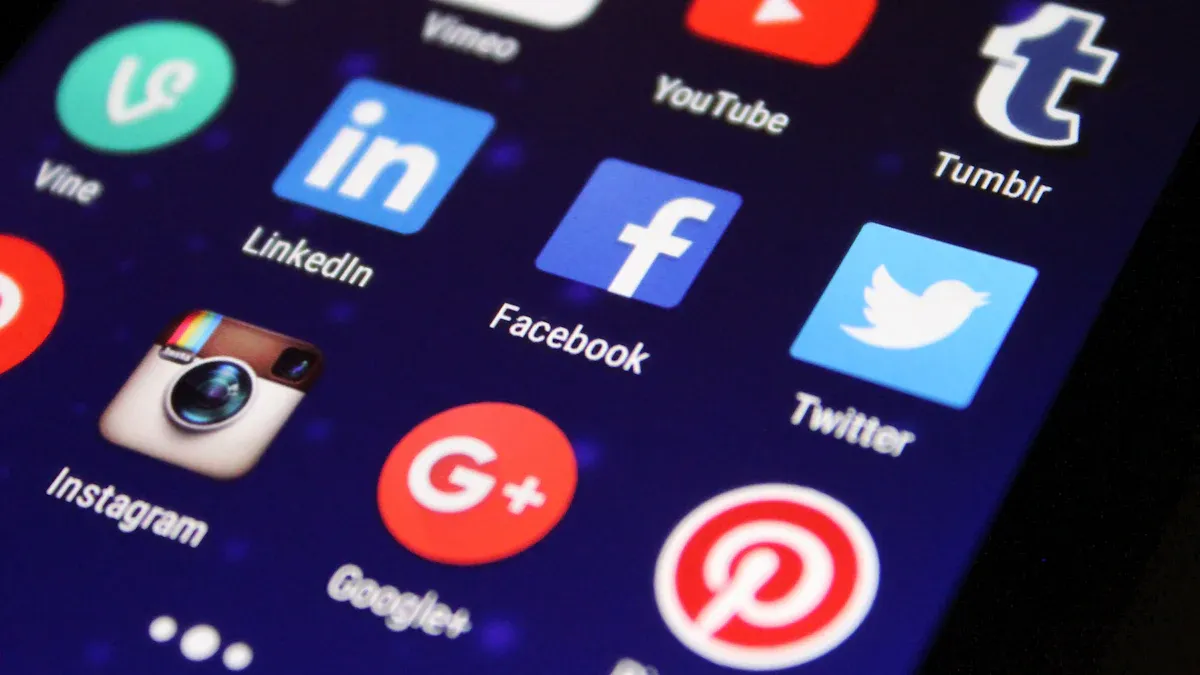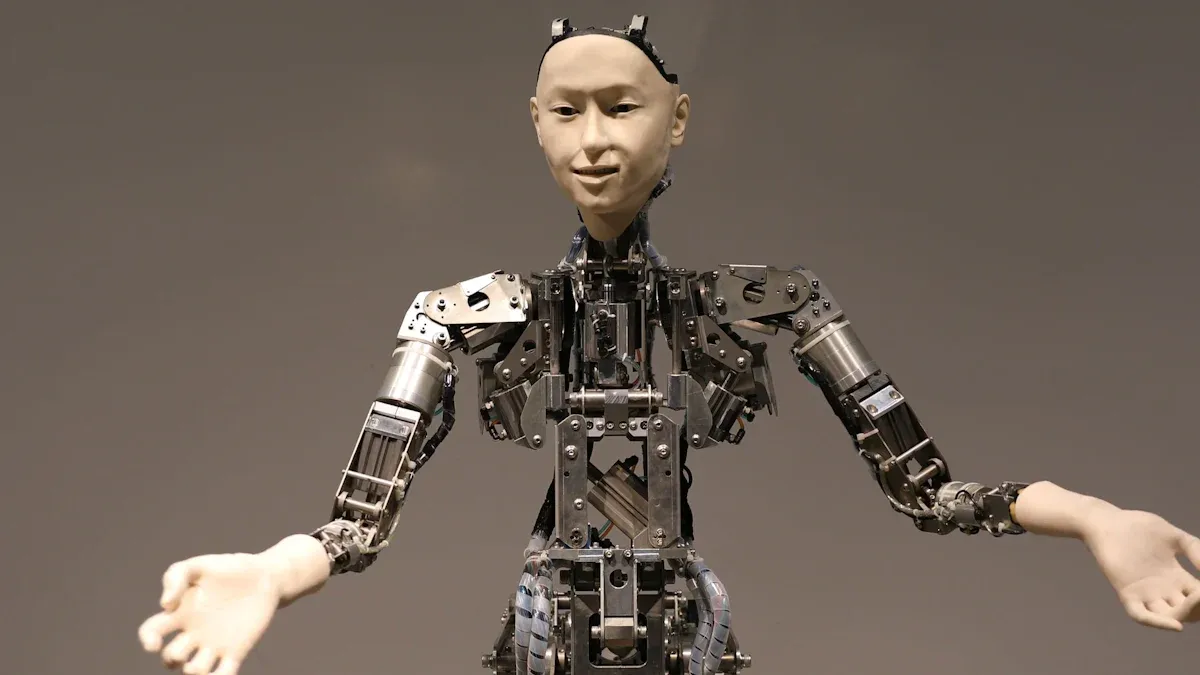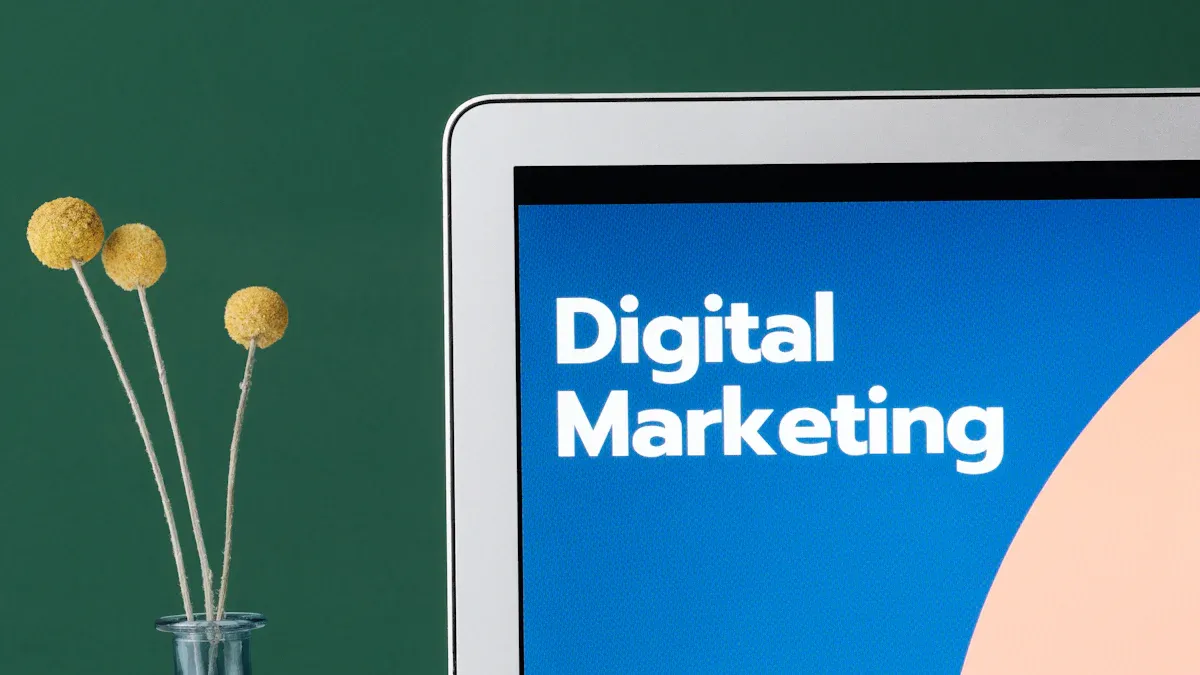How to Use AI to Reduce Ad Spend Waste

Ad spend waste is a significant problem in digital marketing. Companies lose lots of money because of bad targeting and poor ads. Tools like automation and predictive analytics help save money. For example, Google Ads uses Smart Bidding to change bids quickly. This helps get better results. To enhance efficiency, businesses can use AI to find the right audience and predict trends. It also helps you spend money wisely. These tools improve profits and make ads more engaging. They also help get more people to take action, making campaigns better.
Key Takeaways
AI finds people ready to buy, making ads work better and saving money.
AI groups audiences automatically, so ads reach the right people at the right time.
AI changes bids instantly, helping businesses spend money wisely.
AI guesses what customers will do next, helping plan smarter budgets.
AI makes custom ads that get more clicks and sales.
AI spots and stops fake ads, saving money from being wasted.
AI moves money to the best campaigns in real time.
AI helps show ads again to interested people, boosting sales a lot.
Use AI for Audience Targeting

Finding Users Ready to Buy
When you focus on users ready to buy, ads work better. These people already like your product or service, so they may buy soon. AI tools find these users by studying their online actions, searches, and shopping habits. For example, an online store used AI to suggest products and saw sales go up by 28%. AI notices patterns, like visiting the same product page often or adding items to a cart but not buying. By aiming ads at these users, you spend money on people likely to act, saving money and improving results.
Better Grouping of Audiences
AI makes audience grouping smarter by studying lots of data. It uses machine learning to sort people by age, interests, and habits. For example, Comcast used AI to combine data from different places. This helped them show ads that matched what viewers liked, making ads more interesting. AI also helps connect ads across platforms to reach the right people. With AI, you can fine-tune your audience groups and show ads to the right people at the best time.
Predicting What Customers Want
AI tools can guess what customers might do next. They mix data from many sources to create detailed profiles, helping you target valuable groups. For instance, Comcast used AI to predict what viewers wanted, which made their ads more engaging. AI also lets you compare your results with others in your industry to improve your plans. By using AI to predict trends and needs, you can stay ahead and make smart choices to get the most from your ad budget.
Use AI for Automated Ad Placement
Dynamic Bid Adjustments
AI tools help change ad bids as needed. This ensures you get the best value. These tools check data instantly to find the right bid for each ad. They stop you from wasting money on ads that don’t work well. Instead, they focus your budget on ads that perform better.
A travel company improved ROI by 25% using AI for budgets.
AI watches ad performance and moves money to better ads fast.
Using AI for bid changes helps you spend wisely and get better results.
Real-Time Budget Reallocation
AI lets you move your ad budget instantly. It shifts money from bad campaigns to ones that work better. AI checks things like clicks and sales to make these changes quickly.
Metric | Improvement |
|---|---|
ROI | 25% increase |
Campaign Efficiency | 35% higher |
Wasted Ad Spend Reduction | 30% reduction |
By moving your budget in real time, you waste less money. This makes your campaigns work better and ensures your money is spent smartly.
Optimizing Placements Across Platforms
AI helps place ads on different platforms in the best way. It studies user actions and predicts trends. This helps you show the right ad to the right people at the right time.
AI improves ad placement by studying performance data.
Quick changes boost clicks and sales.
Accurate targeting shows ads to the right audience.
For example, AI adjusts bids to get the best prices for ads. This stops overspending and uses your budget wisely. AI also connects campaigns across platforms, making your brand message clear and improving results.
Use AI for Ad Creatives
Making Ads Personal
Personalized ads connect better with people. AI studies what users like and do online to make ads just for them. This makes ads feel more meaningful and boosts interest. For example:
Spotify used AI to personalize ads, keeping users engaged and renewing subscriptions.
Using AI helps you create ads that match what people want. This makes your campaigns work better and saves money.
Testing Ads to Find the Best One
Trying out different ads shows which one works best. AI makes this easier by testing many ads and checking results fast. It looks at things like:
Conversion Rate: How many people do what you want.
Engagement Rate: How much people interact with your ad.
Click-Through Rate (CTR): How many click on your ad.
Customer Acquisition Cost (CAC): The cost to get a new customer.
AI gives tips based on these numbers to improve your ads. This keeps your campaigns performing well.
Making Ads Better with AI
AI tools change ads based on how people react. They adjust things like colors, pictures, and buttons to fit user likes. This is called dynamic creative optimization (DCO). It helps get more clicks and sales.
What Improved | How Much Better |
|---|---|
Ad engagement rates | 47% |
Facebook & Google Ads CTR | 47% |
Cost-per-acquisition (CPA) | 29% lower |
AI-made creatives' conversion rates | 28% higher |
AI keeps ads interesting and useful. This leads to better results and more money earned.
Use AI for Fraud Prevention
Spotting Fake Clicks
Fake clicks waste money and hurt ad success. AI tools find fake clicks by studying user actions and traffic data. These tools keep improving to catch smarter fraud tricks.
"Stopping ad fraud is like a game of hide-and-seek. As scammers use AI to avoid being caught, our AI tools also improve to find new fraud patterns in ad traffic."
To fight fake clicks:
Check traffic data often to ensure sources are real.
Watch click-through and bounce rates for strange changes.
Use tracking across devices to find fraud everywhere.
AI tools block bad traffic before ads run using pre-bid filters. They also check for fraud after ads run, keeping your campaigns safe.
Saving Money from Bad Traffic
Bad traffic wastes money and messes up ad results. AI tools save money by blocking fake users and spotting odd behavior. They study user paths and flag anything suspicious.
Metric | What It Means |
|---|---|
Conversion Rates | Shows how many people do what the ad asks. |
Cost Per Acquisition (CPA) | Tells how much it costs to get one customer. |
Return on Ad Spend (ROAS) | Shows how much money you earn for every dollar spent on ads. |
AI fraud tools improve these numbers by showing ads to real people. This cuts waste and makes campaigns work better.
Making Ad Results Clear
Clear ad results help you make smart choices. AI tools give live updates on campaign data, helping you see trends and improve plans.
Feature | What It Does |
|---|---|
Real-Time Data Analysis | AI studies lots of data fast to find patterns. |
Predictive Analytics | AI guesses future trends so you can plan ahead. |
Automated Reporting | AI creates reports automatically, giving clear and full details. |
AI tools track things like clicks and conversions all the time. They quickly find problems and adjust ads and budgets to improve results.
AI watches ad results live, fixing issues fast.
It finds trends and problems by studying data nonstop.
AI changes ad placements and budgets based on how they perform.
Using AI gives you clear control over your ads, making sure your money is well spent.
Use AI for Budget Forecasting

Predicting Trends in Ad Performance
AI tools are great at guessing ad trends. They study old data and user actions to find patterns. These tools use machine learning to predict what might happen next. For example, they can tell you the best times or days to run ads. This helps you plan campaigns for the best results.
What It Does | |
|---|---|
Predictive Analytics | Looks at past data to guess future trends. |
Bid Adjustment | Changes bids based on user actions and rivals. |
Anomaly Detection | Spots strange patterns to stop overspending. |
Performance Tracking | Watches how ads do to improve plans. |
Predictive Models | Predicts future actions to make smart changes. |
Using these tools keeps you ahead of trends. AI doesn’t just guess; it helps you act on its predictions to spend money wisely.
Allocating Budgets with Data-Driven Insights
AI helps you spend money better by studying ad results. It finds which ads work best and moves money to them. For example, a travel company made 25% more ROI by focusing on good ads.
Aspect | What It Does | Example |
|---|---|---|
Real-Time Budget Reallocation | AI shifts money to better ads fast. | A travel brand got 25% more ROI by moving money to top ads. |
Predictive Bidding and Spend Efficiency | AI adjusts bids to save money and get results. | An online store cut CPA by 20%, getting more buyers for less money. |
Cross-Channel Budget Optimization | AI checks ads on all platforms and moves budgets. | A software company moved 40% of funds to LinkedIn, boosting leads by 35%. |
These insights make sure every dollar counts. AI studies data live, so you can change plans quickly, waste less, and get better results.
Reducing Overspending with AI Forecasting
Spending too much on ads wastes money. AI forecasting stops this by finding problems and fixing them. It uses smart models to decide the right amount to spend on each ad.
Statistic | How It Helps Save Money |
|---|---|
ROI improvement from budget reallocation | 25% |
Lower cost per acquisition | 20% |
Less wasted ad spend | 30% |
AI helps cut waste and focus on what works. This saves money and improves your ad success. With AI, your campaigns stay smart and cost-effective.
Use AI for Retargeting Strategies
Finding Interested Leads
AI finds interested leads by studying user actions. It looks at website visits, emails, and social media use. For example, AI tracks people who visit product pages often or add items to their cart but don’t buy. These actions show they might buy soon.
Tip: Use AI to rank leads by how likely they are to buy. This saves money and focuses on the right people.
AI also combines data from tools like CRM systems and past purchases. This helps you know what your audience wants and when they might act. Businesses using AI for retargeting have seen conversions grow by 150%, proving it works well.
Making Retargeting Ads Personal
Personal ads work better for retargeting. AI helps create ads that match what people like. It changes content, pictures, and offers based on user actions. For example, if someone leaves items in their cart, AI can show them an ad with those items and a discount to bring them back.
Metric | Value |
|---|---|
Conversion rate increase (cart abandoners) | 26% (from 8%) |
Consumers returning to buy | 26% |
Businesses using retargeting for leads | 77% |
Conversion boost after retargeting | 150% |
AI also makes ads more relevant. By studying user data, AI ensures ads connect with the audience. This increases clicks and results. For example, AI-based retargeting ads can boost conversions by 70%, making them much better than regular ads.
Boosting Conversion Rates
AI retargeting improves conversion rates by focusing on interested users. These users are more likely to act. Studies show retargeted ads are 1,046% more effective than regular display ads.
AI also helps recover missed chances. For example, 70% of people leave items in their carts, but retargeting can bring 26% of them back to buy. Using AI for retargeting reduces wasted money and increases ROI.
Note: Retargeted ads have a 0.7% click-through rate, compared to 0.07% for regular ads. This shows they perform much better.
Adding AI to retargeting makes campaigns smarter, more personal, and more successful.
AI changes online ads by cutting waste and making campaigns better. It uses data to find people likely to buy, so ads reach the right audience. Tools like Smart Bidding adjust bids quickly, saving money and increasing sales. AI also moves budgets around to focus on what works, cutting wasted money by 30% and boosting profits by 25%. Old methods often spend too much without accuracy, but AI uses smart data to make better choices. Using AI helps you spend wisely, get better results, and stay ahead of competitors.
FAQ
What is ad spend waste, and why does it matter?
Ad spend waste happens when money is spent on bad ads. It matters because it lowers profits and misses the right audience.
How does AI help reduce ad spend waste?
AI studies data to improve targeting, placements, and budgets. It finds good ads, moves money smartly, and stops fraud. This makes sure your money is spent wisely.
Can small businesses use AI for advertising?
Yes, many AI tools are cheap and easy to use. Platforms like Google Ads and Meta Ads have built-in AI features, like Smart Bidding, for small businesses.
How does AI detect click fraud?
AI watches user actions and traffic for strange behavior. It finds fake clicks, blocks bad traffic, and ensures real people see your ads. This saves money and improves results.
What are predictive analytics in AI advertising?
Predictive analytics use old data to guess future trends. AI tools study customer actions and patterns to help plan better campaigns and budgets.
Do AI tools work across multiple platforms?
Yes, AI tools can manage ads on Google, Facebook, and LinkedIn. They improve placements, bids, and budgets across platforms for better results.
How can AI improve ad creatives?
AI makes ads personal by studying what users like. It tests different ads, changes designs, and uses smart tools to boost clicks and sales.
Is AI difficult to implement in advertising?
AI tools are made to be simple to use. Many platforms give step-by-step help, so you don’t need special skills to start.
See Also
Content Creation Showdown: Writesonic AI Takes On QuickCreator
Analyzing Competitors: Strategies To Stand Out In Content
Achieving SEO Excellence: A Detailed Guide With Perplexity AI
Enhancing Engagement Using TikTok Analytics Tools: A Guide
Five Essential Steps To Find Your Perfect Marketing Consultant

